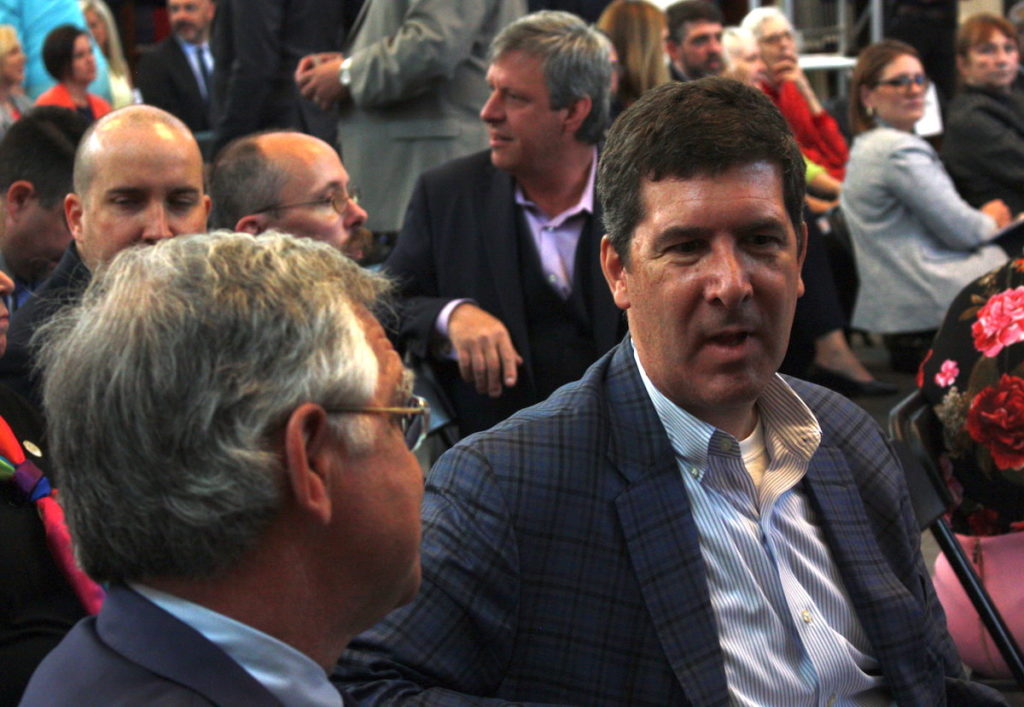
Two more Metro budget proposals were unveiled this week, making for six different ideas as to how much Metro should raise its property tax and how to spend the money.
Metro Nashville’s financial outlook has already prompted a “crisis budget” from the mayor, and now an array of competing alternatives have taken shape. The council has until the end of June to finalize the annual spending plan
The default plan, from Mayor John Cooper, seeks to instate a 32% property tax increase, defer large amounts of the city’s typical spending, cut some departments and begin to restore Nashville’s depleted reserves.
The mayor’s proposal would take effect if the council can’t agree on an alternative. That exceptionally rare scenario played out in 2019, when the council scrambled to compare alternatives and ultimately fell one vote short of passing a substitute.
This year’s debate is at least as complicated, and perhaps the only guarantee is that some form of property tax hike is on the horizon.
Newest Proposals Have A Key Advantage
Since Cooper revealed his budget, four councilmembers have offered counter-proposals, each with a different approach on taxation.
The newest proposals this week come from Councilmember Bob Mendes. His role as the council’s budget chairman gives him a significant procedural advantage, in that his proposals can continue to be refined, whereas the others await simple pass-or-fail votes.
Still, even Mendes — who fought unsuccessfully the past two years for budget changes — says he’s still deciding what to do. So he offered two options.
In one scenario, Mendes suggests the same 32% tax increase as the mayor but tweaks how the money would be spent. His changes include:
- pay scale increases for city employees known as “steps”
- less severe cuts to various programs and nonprofit grants
- spending cuts of $4.4 million to various departments to offset the above spending
Mendes says his proposal tries to avoid another year of “salary compression,” in which longer-serving employees encounter periods of several years where raises are hard to get.
Still, the idea of small tweaks to the mayor’s proposal doesn’t reflect Mendes’ full thinking.
“For several years in a row now, the government has been trying to do with less,” Mendes says. “A lot of low-hanging fruits on cost savings have been grabbed and reaped.”
So he is also considering another path, with a tax increase of 34%.
The additional money would mostly go to 1% raises and step increases for city employees, as well as toward Metro Schools. In this Mendes proposal, the district would get a $7.5 million increase, as well as potentially $4.8 million more if school leaders agree to raise the district’s minimum wage to $15.
“Especially when we’re trying to get schools reopened in the middle of this epidemic, people ought to be able to earn a living wage at MNPS,” Mendes said.
Other key pieces of this option are:
- higher funding for more than a dozen programs
- no cut to the Metro Arts grant program
- spending cuts in other Metro and Metro Schools areas to offset some of the spending
Mendes acknowledges that any substantial tax increase will burden low-income residents. He argues his proposals do more for the programs and nonprofits that serve those residents, so would cushion the impact while adequately funding Metro.
Both Mendes options would preserve Nashville Community Education, a Metro agency started in the 1970s that the mayor suggests dissolving.
The budget chairman can’t, however, move forward with both proposals. In a letter to the council, he says he won’t choose his path until after the public weighs in at the council meeting on June 2.
In a statement, the mayor struck an agreeable tone about the Mendes proposals.
“They appear to maintain the fundamental priorities of the Mayor’s proposed budget,” it reads. “To the extent there may be any appreciable policy differences, these can be worked through during the legislative process with the full Council’s considered input.”
A comparison of the Mendes and Cooper proposals appears in this PDF table.
It’s not clear how other councilmembers will pursue or withdraw their alternatives. Councilmembers Freddie O’Connell and Emily Benedict say they at least want their two proposals discussed. O’Connell has also expressed support for Mendes. Councilmember Steve Glover has not been reached for comment.
This story was updated Friday morning to include updates from councilmembers and the mayor’s office.

